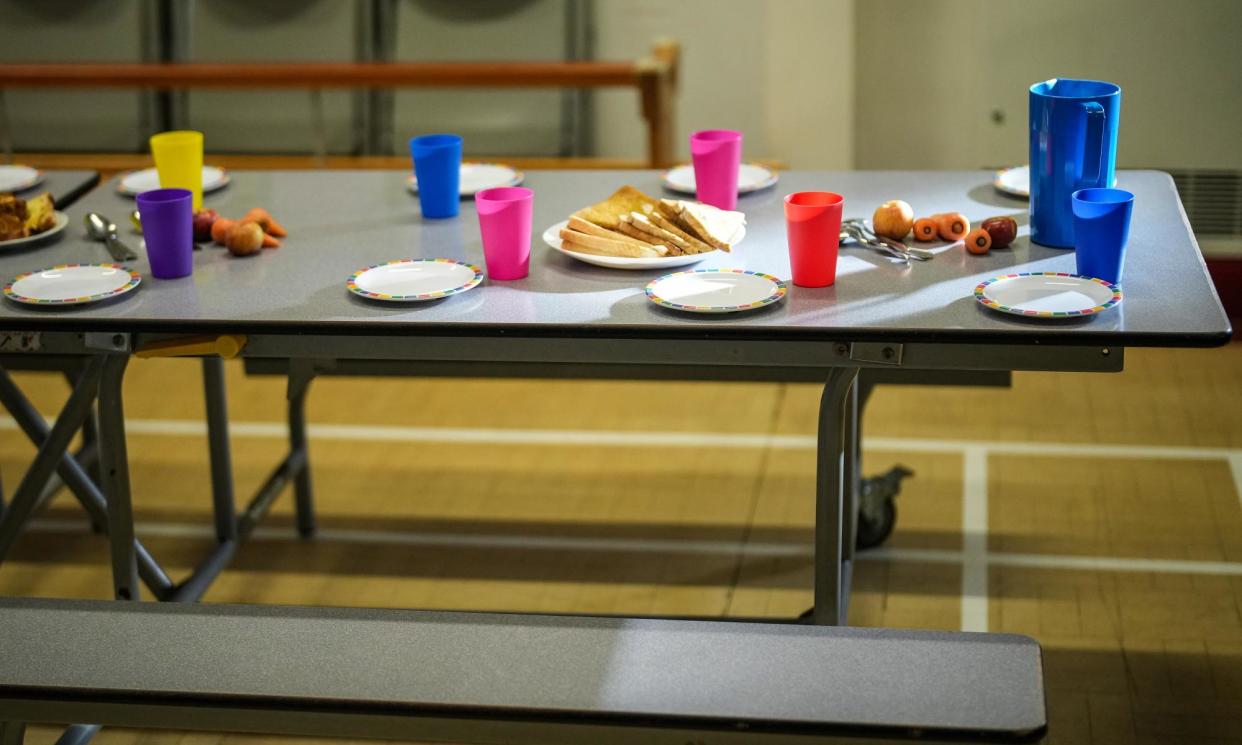The Observer view on deprivation: poverty data is a mark of shame for Tory rule

Poverty figures published last week show that in 2023 one in six British children lived in families suffering from food insecurity, up from one in eight children in 2022. And one in 40 children lived in a family that accessed a food bank in the previous 30 days, almost double the proportion the previous year. The growing number of children whose parents struggle to afford to feed them properly in a country as rich as the UK is a shameful reflection of just how low a political priority tackling child poverty has been for Conservative prime ministers and chancellors since 2010.
Child poverty is rising on every official measure. Almost one in three children now live in relative poverty, defined as households with incomes of less than 60% of the median. And one in four children live in absolute poverty, in households with incomes of less than 60% of the median income in 2011. This represents the fastest rise in child poverty for almost 30 years. Almost half of children from black and minority ethnic backgrounds live in poverty, and 44% of children in lone parent families.
At the end of last year, Unicef figures showed that the child poverty rate rose fastest in the UK between 2012 and 2021 out of 39 OECD and EU countries, many of which succeeded in reducing child poverty over this decade. The UK was the outlier, right at the bottom of the table. As we reported last week, some schools in deprived areas are desperately trying to pick up the pieces: washing uniforms, providing showers, and time and space for exhausted children who do not have their own beds at home to sleep.
Rishi Sunak has failed to confront this abysmal record, choosing instead to hide behind the fact that the number of adults living in absolute – but not relative – poverty has fallen since 2010. Extortionate housing costs and rising rates of inflation in wake of war in Ukraine have acted to increase child poverty rates in recent years. But by ripping up the financial safety net for low-income families and cutting funding for services that support vulnerable children and families at the local level – all while delivering expensive tax cuts that disproportionately benefit more affluent households – Conservative chancellors have made a political choice that it is poor children who they will force to bear the brunt of the laggard economic growth we have seen since the financial crisis.
That becomes evident looking at the impact of Conservative tax and benefit reforms: between 2010 and 2019, the poorest tenth of households suffered most, losing more than 10% of their income as a result of tax and benefit changes; in stark contrast, most affluent households in the top half of the distribution gained financially. By far the biggest impact was felt by poor parents: families with children in the bottom decile of the income distribution lost an eye-watering £4,000 a year on average over this period, the equivalent of 20% of their annual income.
This is a result of the cuts to tax credits that supplement the income of low-paid parents, benefit freezes, the benefit cap which restricts the total amount of benefits working-age people can receive, and the two-child limit which means parents only receive means-tested financial support for their first two children, unless a woman can prove a third child was conceived as a result of rape. It takes no imagination to understand the difference an extra £4,000 a year would make to the poorest families with children. All of this is compounded by the dreadful state of public services – such as mental health and social services – which further increase the risk of households falling into financial poverty as a result of adversity.
Since 2019, Rishi Sunak and Jeremy Hunt have prioritised tax cuts over restoring support to children in poverty; in his spring budget this month, the chancellor announced further tax cuts that benefit middle and high earners most, taking the amount forecast to be spent on tax cuts over the next five years to £65bn.
To prioritise tax cuts for the better off over lifting children out of destitution – according to the Joseph Rowntree Foundation there were over a million children living in households that could not meet their basic physical needs in 2022 – is a moral abomination that reflects the cruel bent of this government, and its lack of care for children. But it is also to store up problems for the future: growing up in poverty blights lives long after children have come of age through its effects on long-term health and employment outcomes, which carry extended costs for the exchequer. Letting children bear the brunt of awful financial hardship in their early years is not only wrong, it makes no financial sense.
Lifting children out of poverty must be a priority for an incoming Labour government, but the party currently has few concrete plans to do so. In broadly committing to Hunt’s completely arbitrary fiscal rules and downsizing Labour’s plans for public investment, shadow chancellor Rachel Reeves risks aligning herself to the wrong-headed Conservative macroeconomic world view that cutting taxes will somehow generate growth.
Whether through borrowing, or reversing planned Conservative tax cuts, one of her first acts as chancellor should be to restore financial support for low-income families with children to their 2010 levels. It is a moral imperative to do so.


